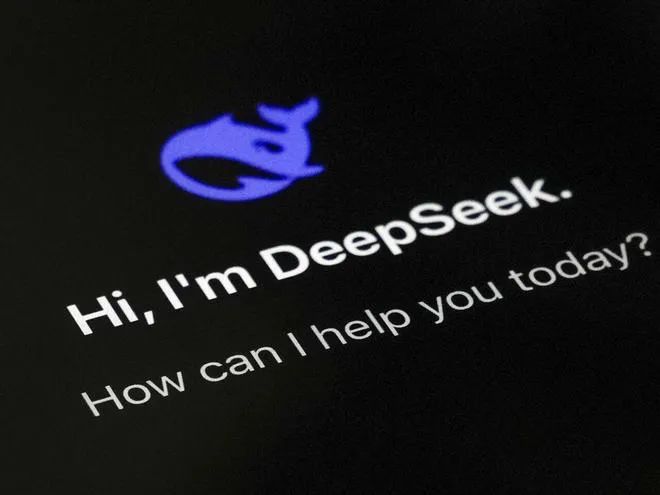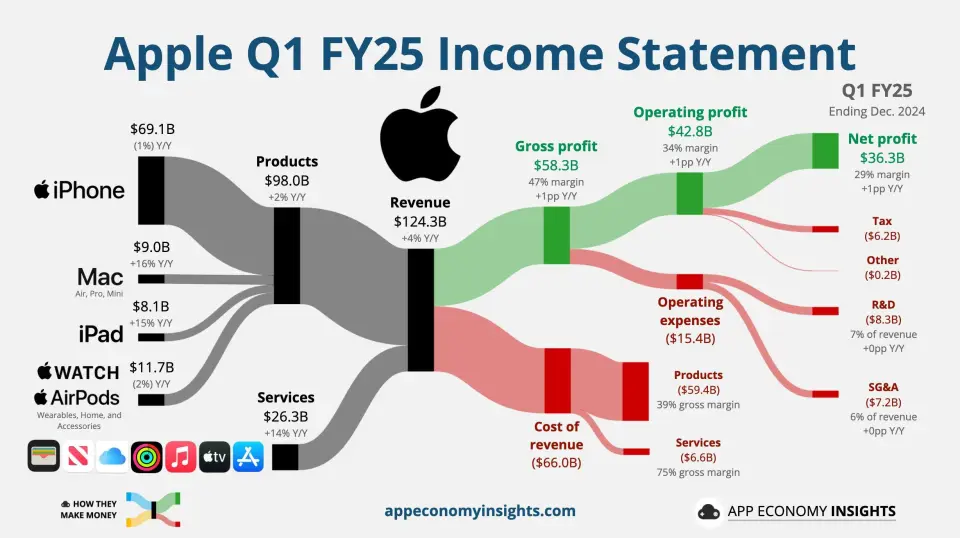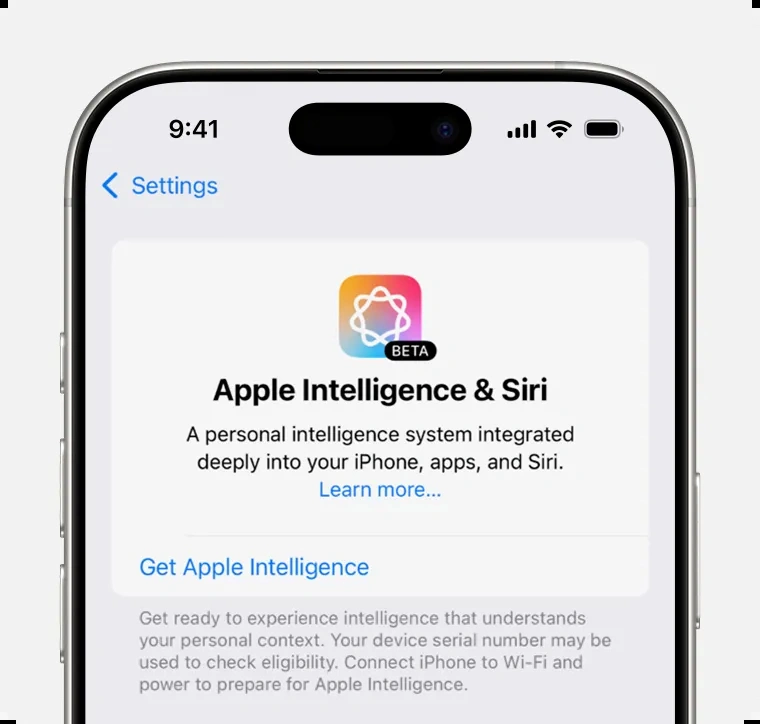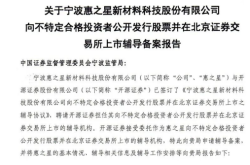Can Collaborating with DeepSeek Boost iPhone Sales?
![]() 02/08 2025
02/08 2025
![]() 483
483

Can DeepSeek Rescue Apple?
Despite consistent skepticism in recent years, Apple's formidable ecosystem has sustained its position as the world's leading smartphone business in 2024.
According to its latest Q4 2024 financial report, both revenue and profit increased. However, from a product and market segmentation perspective, Apple still faces significant pressure.
Firstly, iPhone sales, Apple's core product, exhibited negative growth. The iPhone 16 series failed to drive sales effectively, falling short of London Stock Exchange (LSEG) expectations. During the peak sales season, iPhone sales declined, which is disheartening for Tim Cook.
Secondly, in the world's largest smartphone market, Apple's performance in Greater China was notably weak. Sales in China fell by 11.1% in the quarter, far below market expectations. Research firm Counterpoint data revealed a 18.2% decline in iPhone sales in China during Q4, placing Apple in third position.
Apple's Responsibility for Sluggish iPhone Sales
Behind the financial report's pressure lies the fact that Apple's revenue and profit exceeded expectations primarily due to software service income. The Q4 financial report shows net revenue from hardware products at $97.96 billion, a 4.1% year-on-year increase, and net revenue from software services at $26.34 billion, a 13.9% year-on-year increase.

The software service business most commonly known to ordinary users is the 'Apple tax,' referring to revenue sharing from the Apple App Store. Selling services has been more profitable than selling hardware for Apple over the past few quarters.
Fundamentally, Apple is a software company. Steve Jobs once told Bill Gates, 'Apple is a software company.' He explained that 'what Apple provides is software in a beautiful box,' and only self-designed hardware can best present software. Based on this, Apple has established a highly integrated business model that combines hardware, software, and services.
Regarding Apple's poor performance in the Chinese market, CEO Tim Cook cited two reasons: changes in channel inventory and the absence of Apple Intelligence in the region, which failed to boost sales.
Simply put, Apple Intelligence bears significant responsibility for the iPhone's sluggish sales in China. This stems from Apple's incremental innovation approach. Amidst locally made smartphones led by Huawei, Apple struggles to convince consumers to buy its products. Especially with Huawei's strong return to the high-end market, it has captured a large number of Apple users, reclaiming market share that once belonged to it.
Over the past year or two, Cook has frequently visited China, expressing intentions for continued cooperation and investment on multiple occasions. For instance, in implementing Apple Intelligence, Apple has sought support from local partners to enhance its AI competitiveness in China. However, based on current performance, Apple's overtures to the Chinese market have yet to receive positive feedback.
Market analysts have noted that Cook's initiatives are part of Apple's ongoing strategy to strengthen regional relations. China is crucial for Apple, both as its largest single consumer market and a key manufacturing hub.
In Tang Chen's view, smartphones remain the most mature form of digital products today, and the significance of the iPhone to Cook and Apple is self-evident. It's worth mentioning that Apple has not disclosed specific sales figures for the Apple Vision Pro. Judging solely from market buzz and industry feedback, it's currently difficult for it to replace mainstream smart devices like smartphones.
For Apple, Apple Intelligence is not just about telling a new story amidst stagnant innovation and smart device homogenization, forming differentiated selling points. More importantly, it's Cook's trump card for stabilizing share prices and maintaining Apple's position as the world's most valuable company. For instance, after the launch of Apple Intelligence, the capital market has been optimistic about Apple's stock price, which has repeatedly hit new highs.
However, Apple was late to the AI game, and one step behind leads to being behind in every step. To address the 'dimensionality reduction attack' from the era of large models, Apple took a shortcut: Cook not only tried to seize the right to interpret 'AI' in naming but also adopted a gradual opening strategy for Apple Intelligence.
In Q3 last year, Apple Intelligence officially launched in select regions and only supported English. Subsequently, in Q4, it launched in more regions, boosting sales of Apple hardware products.
DeepSeek: Cook's New Choice
However, in the Chinese market, where iPhone sales have significantly declined, the launch date for Apple Intelligence remains uncertain. Cook did not provide a clear timeline during the earnings call, stating only that Chinese support would be available in April 2025.
But one thing is clear: considering security and compliance requirements, as well as the time needed for filing and approval, integrating existing large model products in China onto domestic Apple devices (iPhone, iPad, MacBook, etc.) is almost Apple's only option.
During this period, Apple has been rumored to be in talks with large model enterprises such as Baidu, Alibaba, Tencent, ByteDance, and even Baichuan Intelligence, exploring the possibility of integrating their large models onto domestic iPhones. The news of a strategic cooperation between Apple and Baidu was once widespread, suggesting that the ERNIE Bot large model would be introduced into iOS 18 and the latest iPadOS, macOS.
However, rumors of ongoing negotiations between Apple and Tencent, ByteDance regarding related cooperation also circulated. While Baidu was the most affected, for users of domestic Apple devices, it has become unpredictable when Siri, which is clunky and not very intelligent, will evolve into the complete form of Apple Intelligence, especially as Android and HarmonyOS users experience efficient AI services.
Recently, with the popularity of DeepSeek as a global focal point, Apple's cooperation with domestic large model enterprises has added another variable, giving Cook more options. He specifically mentioned during the earnings call, 'I think innovations that drive efficiency improvements are a good thing, and you can see this from the DeepSeek model.'
This statement hinted at the possibility of Apple shifting its focus. Industry insiders believe that with DeepSeek's strong performance in domestic implementation, Apple need not worry about a significant 'discontinuity' in AI experience between domestic and international markets.

DeepSeek's low cost aligns with Apple's strategy. Notably, tech media The Information, reporting on Apple's cooperation with Baidu on large models, cited sources saying Apple had paid Baidu tens of billions of dollars to use the ERNIE Bot 4.0 large model, including fees for user calls and costs for model retraining and fine-tuning.
DeepSeek's low cost introduces a new open-source model outside of OpenAI. This model not only objectively 'helped' Apple severely impact NVIDIA's stock price and reclaim its position as the most valuable company but also provided the industry with a more affordable AI model option that offers equally high-quality experiences.
The stock market has already voted with data. In trading before the financial report release, Apple's stock price fell slightly. Despite the dismal performance in the Chinese market, based on optimism about Apple's future AI implementation, its after-hours stock price still rose by more than 3%.
What Cook needs to be vigilant about is that Apple still needs to focus on product innovation. In the short term, Apple Intelligence will boost sales of Apple's smart hardware, but in the longer term, the development of large models is still far from reaching a singularity that can drive hardware sales.
In other words, consumers' current usage habits for AI functions on smartphones have yet to form. While large models are undoubtedly the future focus of development for all smartphone manufacturers, they will not become a primary reason for consumers to upgrade their phones in the short term.
Many research reports from third-party institutions convey a core message: AI phones have not yet become a core player in the smartphone market. For example, a Canalys report shows that 57% of Chinese consumers have only general or no interest in AI.
The more intelligent Siri integrated with GPT-4 on the iPhone, along with tools for writing assistance, photo editing, and custom emojis, has failed to excite users and has even been described as 'quite bland.' A recent survey by the US second-hand trading platform SellCell revealed that 73% of users who have actually used Apple's AI features believe they provide little or no value in terms of user experience.
'There are expectations, but not high,' shared a loyal 14-year iPhone user about their views on Apple Intelligence. 'I have expectations because others have it, so I want to try it too. But when I think about it, I feel like there are limited scenarios where I can use it, and I'm afraid I'll have to constantly fix AI's mistakes in the future.'
DeepSeek can become an important plot in Apple's new story of intelligence, but to 'save' Apple would be an exaggeration.
However, Cook remains confident. He told the market, 'I think there's still a lot to come in the future. Innovation in the iPhone is far from over, and there's still plenty of room for innovation in smartphones. I'm incredibly optimistic about our product line.'
References:
TMTPost, 'Can DeepSeek "save" Apple?'
Tang Chen, 'WeChat is counteracting, is Cook's 'Apple tax' unavoidable?'
China Newsweek, 'Who will eat the 'apple' - Baidu, ByteDance, or Tencent?'



